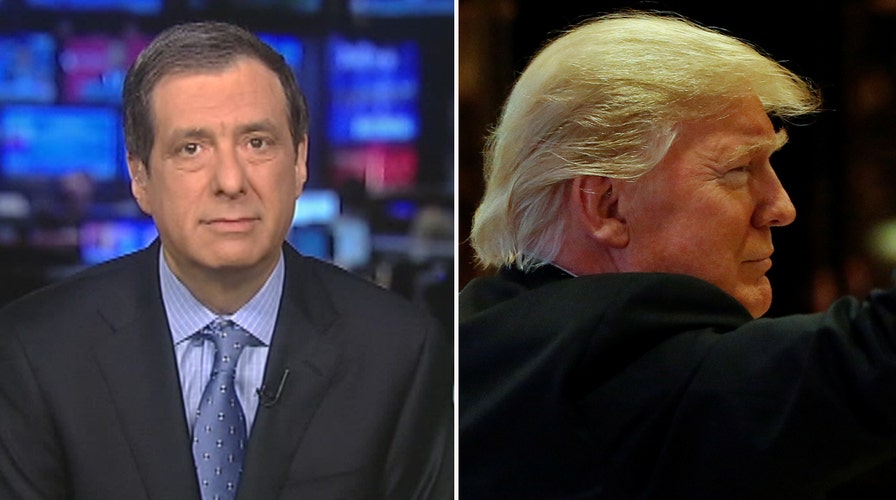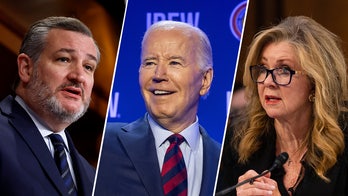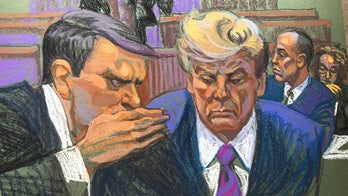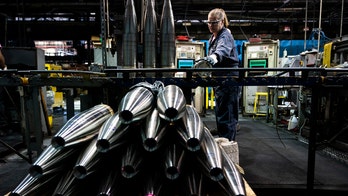Kurtz: What's behind Trump's dismal poll numbers
'MediaBuzz' host Howard Kurtz weighs in on what Trump's current transition poll numbers really mean
A consensus has emerged in the media—which, as we know, never get it wrong—that Donald Trump has squandered his transition.
And the polls prove it, journalists say.
It was polls, of course, that assured the media establishment that Hillary Clinton would be sworn in on Friday.
I don’t think the picture is as dire as many are suggesting, and here’s why:
Most incoming presidents don’t do much during their transitions. They pick a Cabinet and White House staff, make a few pronouncements, hold a news conference. There’s a natural rise in their ratings because they haven’t done much to make anyone mad, and are basking in the glow of feature stories about their style and their families and their pets.
Trump, by contrast, has been constantly in the news during his transition, totally overshadowing Barack Obama. He’s unleashed the Twitter. He has held forth on car manufacturers, intel agencies, Russia, health care and nuclear policy, not to mention Meryl Streep, Alec Baldwin and Arnold Schwarzenegger. He has constantly attacked the media.
In short, Trump has stuck to the same combative style that won him the presidency but also alienates many of those who didn’t vote for him.
Gallup reports that 44 percent approve of his transition and 51 percent disapprove. The comparable numbers for Obama (83/12), George W. Bush (61/25) and Bill Clinton (68/18) make the contrast clear.
A Quinnipiac survey gives him lower marks (37/51), and 45 percent say he will be a worse president than Obama, 34 percent a better president and 15 percent about the same.
The Washington Post’s Dan Balz puts it this way:
“No president in memory has come to the brink of his inauguration with such a smorgasbord of potential problems and unanswered questions, or with the level of public doubts that exist around his leadership. Though he dealt with the issues directly on Wednesday, what he could not answer — what he cannot answer until he is in the Oval Office — is whether he can avoid having these kinds of questions plague and possibly debilitate his presidency over the next four years.
“Trump and his advisers have dismissed much of the pre-inaugural controversy as part of an effort to delegitimize his election victory and undermine his presidency even before he takes office. Still, the questions swirling around him as he came to the lobby of Trump Tower were an unprecedented mixture of the personal, the financial and the substantive.”
There are actually pluses and minuses to the Trump approach.
If he had spent the transition getting a tan at Mar-a-Lago, his approval ratings would be better. He wouldn’t be picking fights and staking out controversial positions, or giving the media fodder for negative pieces.
He also wouldn’t be Trump.
Instead, he is redefining the transition the way he redefined the nature of campaigning for president.
He is laying down markers and setting things in motion for after the swearing-in. He can claim some symbolic victories, such as companies that are rethinking or changing plans to move jobs out of the country. He has fired up his base on signature issues. And while detractors found his Trump Tower presser chaotic, he stuck to his guns on key issues and stuck it to the media, while also sliding in his lawyer to defend his plan not to divest his stake in the Trump Organization.
Trump won a close election and lost the popular vote. So by hitting the ground running, he’s about where he was on Nov. 8, with fierce supporters and outraged critics in a divided country.
Transitions have a way of quickly fading into history. The more telling polls will take place once Donald Trump is actually governing.
Spicer vs. Acosta
On “Media Buzz” yesterday, incoming White House press secretary Sean Spicer amplified his criticism of Jim Acosta, saying the CNN correspondent was “childish” and “disrespectful” in repeatedly interrupting Donald Trump at a news conference. But then he went a step further.
Spicer said Acosta “lied about the events of that day, he was 100 percent false.” After the show I reached out to CNN for comment, and the network is strongly backing its reporter.
Spicer says Acosta claimed that in a conversation after the presser the spokesman “told him if he asked a hard question [next time] he’d be removed, that’s 100 percent not true.” As Spicer recounted the episode, Acosta disagreed with his contention that he’d been disrespectful to the president-elect.
“I said, ‘Jim I want to be clear, if that happens again I will have you removed,' the same way we’d remove a protester that was acting as disrespectful as he did.” Spicer added that he, and Trump, have no problem with “hard” questions.
Acosta had demanded to be recognized after Trump criticized CNN’s role in publicizing an unsubstantiated dossier alleging that the Russians had “compromising” information about him, but without airing any details. Trump refused and kept disparaging CNN.
A CNN spokesperson told me, “As we have learned many times, just because Sean Spicer says something doesn’t make it true.
“Jim Acosta is a veteran reporter with the utmost integrity and extensive experience in covering both the White House and the president-elect. Being persistent and asking tough questions is his job, and he has our complete support.”





